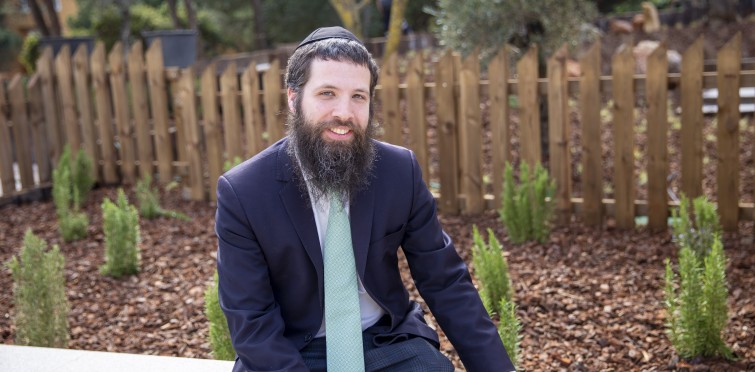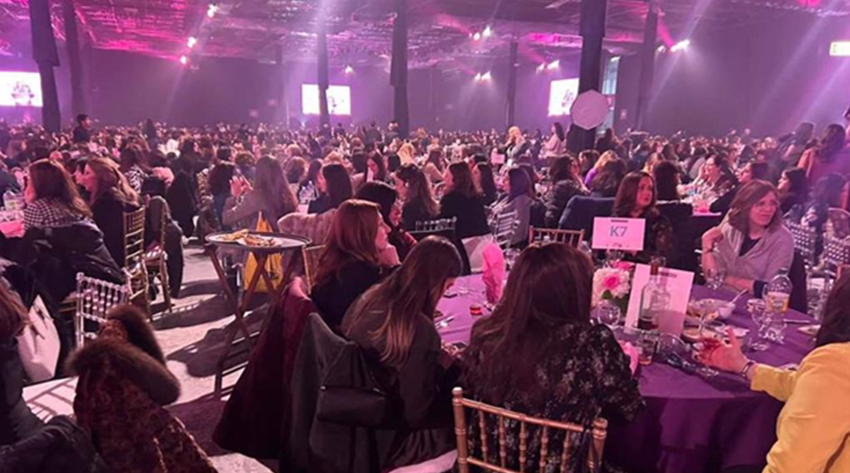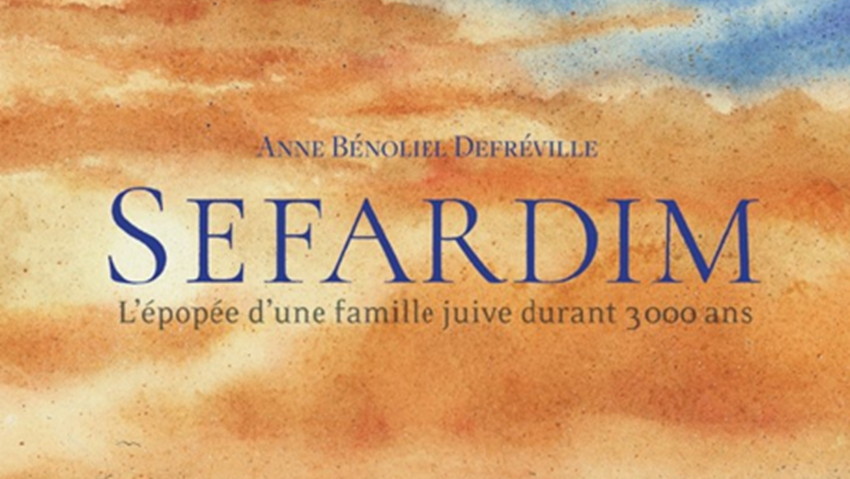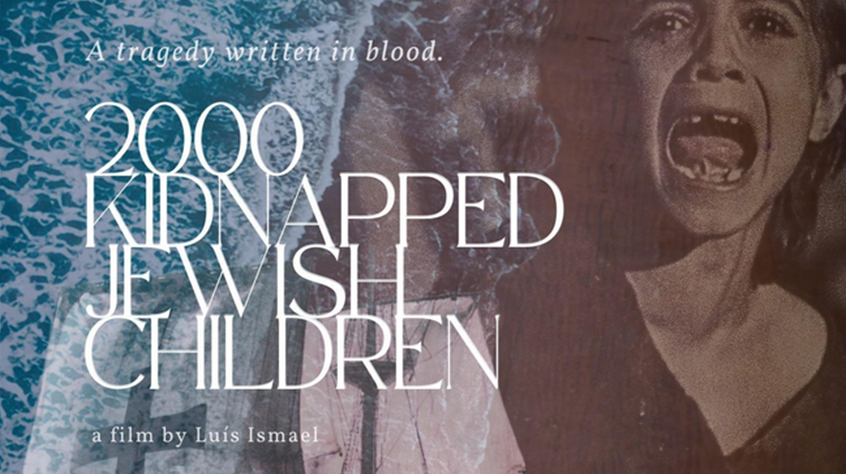In 2010, you were appointed as Shaliach, Chabad-Lubavitch Emissary to Portugal. Usually emissaries don't stay long in a country. What motivated you and your wife to choose to live in Portugal?
From a young age I knew I wanted to be a Shliach, an Emissary of the Lubavitcher Rebbe. I grew up living in the Rebbe’s neighborhood in Brooklyn, New York, and as a child I would spend hours and hours listening to his talks in Yiddish, which I could not understand at the time, but as an adult I look back to those moments which shaped the course of my life.
In 2006 still as student I volunteered to spend my summer break as part of the Merkos Shlichus Program. This program was instituted in the 1940’s, where every summer Chabad Yeshiva students would be dispatched across the world to visit small Jewish communities. It was during this year that I first visited Portugal.
I was one of a long number of groups of students who would be visiting each year from New York. It was during these visits that people would ask “why isn’t there yet a Chabad House in Portugal when every other country in Europe has one?”
From that first visit in 2006, I maintained connections and friendships within the Jewish communities in Portugal. When my wife Raizel and I got married in 2008, we visited Portugal together and from that moment Portugal never was far from our minds, with encouragement from the Chabad Headquarters in New York, we arrived as a family in the end of 2010.
How, then, did you find Jewish life in Lisbon and in Porto?
From our first moment in Portugal, we right away felt very welcomed and part of Jewish life in Portugal. We immediately recognized that we weren’t moving to a country that was merely beautiful, but a country that had along an impressive Jewish tradition.
From medieval times and to the modern era, Portugal has always played a pivotal role in Jewish history. Both in Lisbon, where we first lived, the CIL was on the cusp of celebrating its 100th year since official government recognition, and in Porto a short while later they were celebrating 75 years from the opening of the Synagogue. We realized we were part of a beautiful mosaic of Jewish tradition and were proud to be part of it. We also made friendships with people in Belmonte, Algarve, and Ericeira. And other parts of the country.
What differences exist from that time in both cities and all the country, to the present day?
The first few years in Portugal were beautiful but also challenging, the country was experiencing the heavy toll from the recession and economic crisis and many young people were leaving to look for work outside of Portugal. It is amazing to see the turnaround that has occurred in such a sort amount of time, and the great growth of Jewish life in Portugal.
Can you describe the evolution of the Sukkot party you participate in Oporto from 2012 until now?
It has been a decade now where every sukkot we have spent an evening together with the community in Porto at the Mekor Haim Synagogue. During the first few years there was only a handful of people there, while today hundreds and hundreds of people attend. It is nothing short of miraculous to see the transformation. Now there is so many people and so much Joy in a massive Sukkah that is filled to capacity.
At a certain point in your life, you moved with his family to Cascais. What is it about Cascais that inspired you to go?
From the moment we arrived in Portugal, families in Cascais started inviting us to visit them and study Torah together. Living as we did without a car this was often a whole day affair, the two Metro lines to the Train and then a taxi, traveling time would take hours. When a few years after we arrived, a generous Jewish family suggested we use their house as a base for study and teaching we thought it was a perfect opportunity. Thankfully, with G-d’s help Jewish life now flourishes in Cascais.
Chabad Lubavitch of Portugal, Avner Cohen Casa Chabad, opened in 2020, Kindly tell us a little bit about the process of turning the dream into reality.
The institution Rohr Chabad Portugal was founded with the generous help of the Rohr family in NYC in 2010. As our activities in Cascais grew we approached the Mayor of Cascais, Dr Carlos Carreiras, and told him of the need we had to find a permanent home. He encouraged us every step of the way.
We needed to find a location that was in close proximity to where many people lived and with easy access. After securing the location, the Cohen family, now living in Israel, whose mother was born in Lisbon, decided name the new Center in honor of their father and husband Avner Cohen, thus the name the Avner Cohen Casa Chabad.
The Center has many different wings that were dedicated with local support, including the main Atrium which was dedicated in honor of Rabb Isaac Aboab the great 15th century Rabbi who is buried in Porto.
What activities do you have in this Chabad House, the largest in Europe?
I don’t think it’s the biggest Chabad House, but I do feel it is one of the most unique, both in its architecture design and function. The center was only completed in the beginning of the Covid era so many of its potential uses have still been quite limited, for instance, the dining areas have mostly not been used and most celebrations take place in the open-air Patio.
We do have regular learning opportunities, and activities for kids and adults, a couple of the popular regular programs are children coming to bake the special Challah bread before Shabbat. Or on Wednesdays, we have library day where people come to enjoy the beautiful library, with a historic collection of books connected to Portugal’s past. The Mikvah is regularly used as well as gardens that adorn the buildings exteriors.
Who frequents it?
The building was designed to feel like a Jewish Home to anyone who enters, and thankfully we have welcomed hundreds of people through the doors the past few years from all backgrounds and nationalities.
It was your idea to light a public chanukiá in Lisbon and Cascais. Is it a way for Judaism to be present in the city?
Lighting the Chanukah lights in a public space was one of the initiatives of the Lubavitcher Rebbe, and in the decades since the campaign began, the lights of Chanukah are now kindles in public spaces across the globe. On the White House lawn Washington, at the Eifel Tower in Paris and in countless capitals and cities across the world.
In anticipation of Chanukah in 2011, we partnered with the Jewish community in Lisbon to have the Chanukah lights placed at the very center of the city in Park Eduardo VII, overlooking Marques de Pombal in the heart of Lisbon. The CIL was able to receive the permission from the municipality, as well as the attendance of some of the Mayors of Lisbon who attended over the years, including the current Mayor Dr. Carlos Moedas, as well as the current Prime Minister Dr. Antonio Costa who participated in 2012.
A couple of years later, at the behest of a dear friend of ours who lived in Cascais - Pat Westhemier we went to meet the Mayor of Cascais to see if he would give us permission to bring the Chanukah lights to a public area. Being that it was only a few weeks before Chanukah, we thought it would be wiser to ask about Chanukah the next year. The mayor however had other plans. He immediately understood the significance and importance and took us to the window of the city hall, overlooking the Cascais Bay and asked “How about right there?” . Needless to say, just a few weeks later we celebrated Chanukah in the center of Cascais.
Having the Chanukiah in the center of Cascais and Lisbon has allowed us to meet people, who just happen to be passing by. There are many people that we know today that have become active participants in Jewish life, after first meeting us when they were drawn to the Chanukah lights outside.
Your (extraordinary) work reaches Jews from the least observant to the orthodox. How is this achieved?
The Rebbe always taught us to look at each individual from the perspective of their Neshama, their soul within. Regardless of any person’s level of knowledge at the core we are all the same. Across the world people know that when they enter a Chabad House they should feel at home.



































